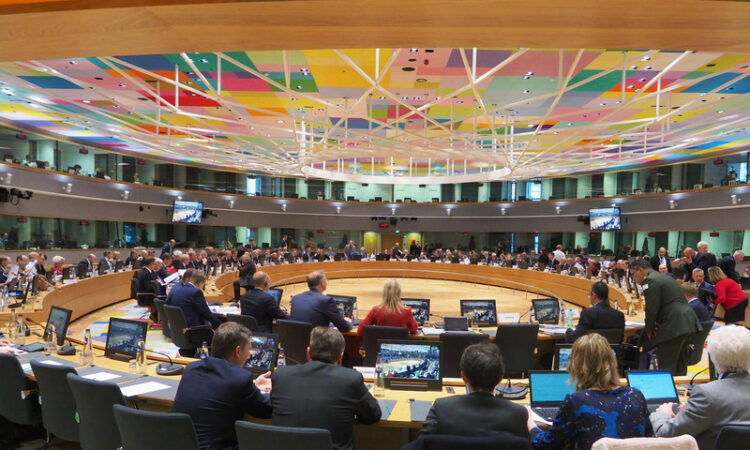
EU member states will meet in Brussels on Thursday (1 February) for another round of budget negotiations.
There, 26 leaders will once again try to trick, cajole or seduce Hungary’s prime minister Victor Orbán to sign off on a €50bn budget top-up for the Ukrainian war effort.
Negotiations over the giant financing operation for Ukraine — consisting of €33bn in loans and €17bn in non-repayable grants financed by member states — will dominate talks.
The so-called Ukraine Facility is part of the review of the EU’s long-term budget, which also includes other budget proposals already agreed upon by the other 26 member states at a previous summit in December.
These proposals are significant on their own and signal Europe increasingly prioritises migration and defence over green and foreign aid spending.
The so-called ‘sovereignty fund’, which was initially announced as a means to counter the €720bn in energy and climate finance under the US Inflation Reduction Act, has been slashed to a €1.5bn financing tool mainly for the procurement of ammunition, later described on social media by Sander Tordoir, a senior economist at the Centre for European Reform as a “Micky Mouse budget.”
The European Investment Bank (EIB), whose president Werner Hoyer had started to position it as the bloc’s ‘climate bank’ from 2019 onwards, recently committed to increasing security investments to €8bn, up from €6bn. And this month, it launched a €175m financing facility for smaller defence firms.
“It is a sensitive topic inside the bank,” a person with knowledge of the bank’s inner discussions told EUobserver anonymously. “[EU Commissioner for the internal market Thierry] Breton suggested funding grenades using EIB loans. But the whole point of the bank’s existence is to bring good things to the world. Are grenades good? Is this really the way to go?”
Less aid for fewer migrants?
European countries also agreed to raise €7.6bn in extra financing to curb migration and enhance border surveillance. This will not be paid for with a fresh top-up from member states.
Instead, the money will be syphoned off from funding pots meant for long-term strategic investments in development aid, pandemic preparedness and protection against climate change.
According to the December plan, €1bn would be reappropriated from the €5.6bn EU4Health programme, which was established in response to Covid-19 to help countries build resilience against “cross border health threats.”
Another €2.1bn comes from HorizonEU, the bloc’s main financing tool to spur research and innovation. Most criticised, however, has been the decision to cut — or ‘repurpose’ as EU diplomats describe it — foreign aid funding.
Most significantly, the compromise includes a €2bn reallocation from the EU’s main development tool: the Neighbourhood, Development and International Cooperation Instrument, or NDICI.
Established by the EU Commission in 2021, it was meant to “help those most in need” deal with “long-term challenges,” and it will now be used to “fund fences and patrol boats,” David McNair, the director of NGO One Campaign, a global anti-poverty group, said on social media. “That is not the world I want to live in.”
According to the NDICI programme’s rules, unspent funds may not be repurposed for other things but should be invested according to the programme’s original purposes — a stipulation member states have since decided to ignore.
Most of the €79.5bn budget has already been allocated. But the fund also includes a €9.5bn rainy day pot to be used to help vulnerable countries during emergencies.
According to the December agreement, “funding for the NDICI-cushion should be ensured” for the entire budgetary period (2021-2027).
But 80 percent of the fund — translating to €7.6bn — has already been spent, mostly on emergency Covid-19 funding, in the first three years of the term, leaving only €1.9bn left to cover the final four years.
“This leaves very little money left to respond to potential future crises,” Emily Wigens from the One Campaign told EUobserver.
This decision has been called “illegal” in a letter sent to the commission by ten civil society groups. This week, former EU commissioner for trade Pascal Lamy also criticised the move.
“This approach jeopardises the EU’s relationships with partner countries and its credibility as a global actor,” he wrote in an op-ed. “Instead of increasing resources in the face of existing and emerging crises, the EU seems more likely to turn its back to look inwards, at the time the world needs it most.”






